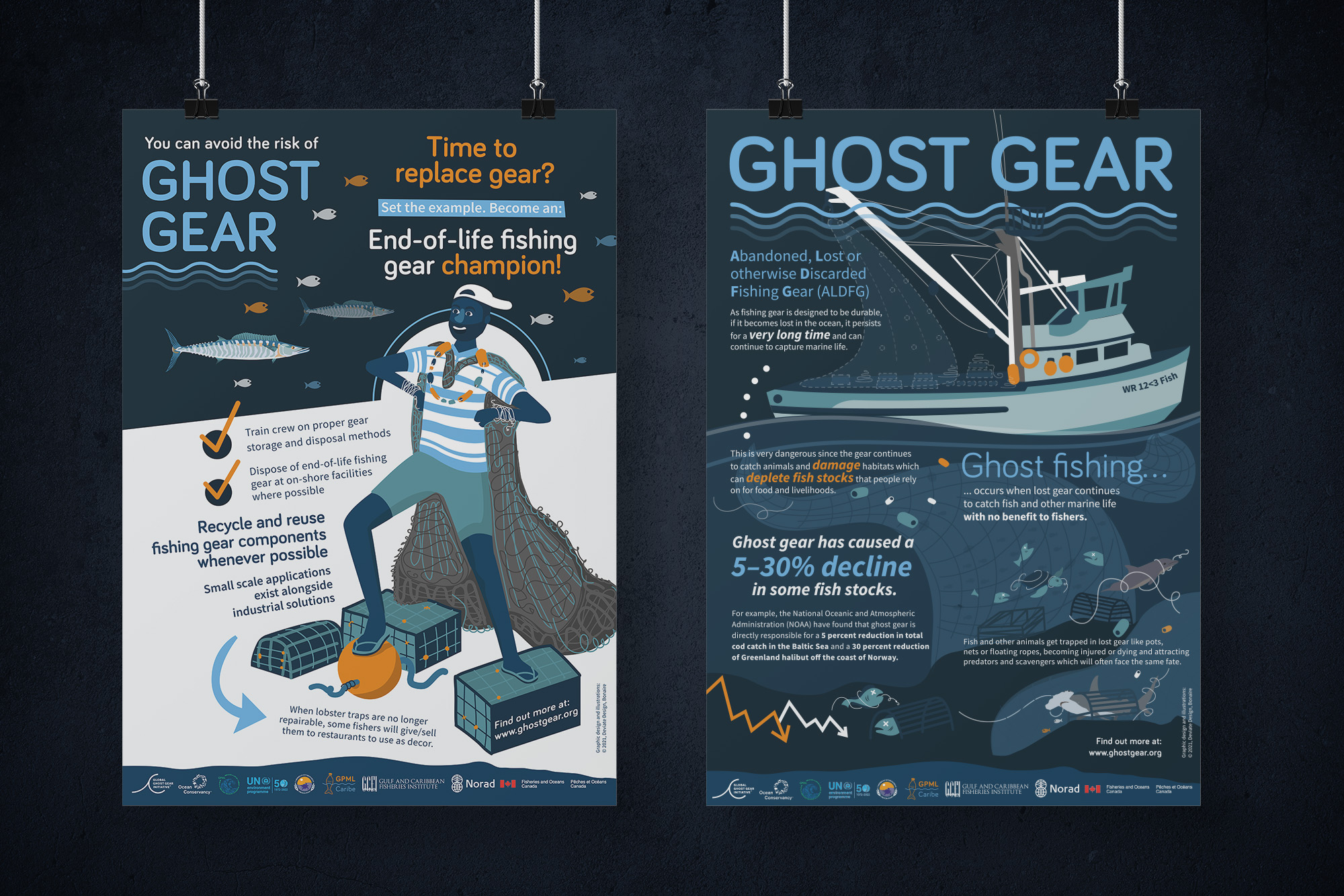
Otherwise known as ‘ghost gear’, ALDFG is the most harmful form of marine debris as it is designed to last a long time. Once lost, ghost gear can continue to catch fish targeted by fishers and it can entangle other aquatic species and damage marine and nearshore habitats. Each year, tens of thousands of traps and pots are lost or abandoned in the world’s ocean due to rough weather and strong currents or conflicts with other fishing vessels. Ghost gear is expensive to replace if lost and hazardous for fishers and marine communities to deal with.
| Large Posters for Print | English | Spanish | French |
| Small Poster Series | English | Spanish | French |
Managing ALDFG is essential to ensuring the future sustainability of fisheries across the Caribbean region and safeguarding people’s livelihoods and food security. The Caribbean Regional Action Plan to Prevent ALDFG (Caribbean RAP hereafter) was developed by the Global Ghost Gear Initiative to provide strategic guidance for a coordinated approach to managing ALDFG across the region through a variety of relevant best practices across prevention, mitigation and remediation strategies. The Caribbean RAP aims to provide a series of relevant recommendations for the Caribbean region offering a coordinated approach to preventing ALDFG in the region, safeguarding the future of the regions’ fisheries and the communities that depend upon them. Access the full report here.
